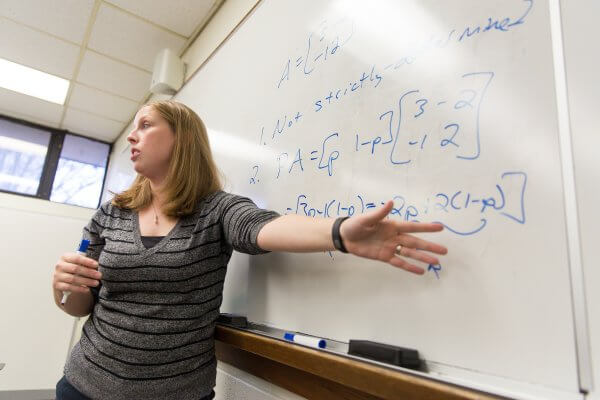B.S. in Data Science
The College of Arts and Sciences now offers a B.S. in data science. The video below gives an overview of our data science program:
What is a Data Scientist?
A data scientist analyzes complex systems and solves real-world problems through the analysis of data, and in particular, very large sets of data. Many scientific disciplines, our economy, and even our providers of streaming entertainment increasingly rely on data. You’ll work with a variety of methods including predictive/prescriptive analytics, algorithm design and execution, applied machine learning, statistical modeling, and data visualization.
Why Data Science?
Data science, and its associated fields, is one of the fastest growing employment opportunities in the world. A strong demand in the job market — combined with a shortage of people trained in data science —means you’ll have opportunities in all sectors of society.
According to the Education Advisory Board, some of the top occupations requiring data analysis skills are:
- Marketing managers
- Financial analysts
- Computer systems engineers/architects
- Business intelligence analysts
- Computer programmers
And, some top employers for data analytics-related skills are:
- Amazon.com
- UnitedHealth Group
- Microsoft Corporation
- JP Morgan Chase Company
- General Electric Company
The new bachelor of science in data science at Valpo is designed to give graduates the interdisciplinary skills that employers need. The data science program integrates statistics, mathematics, computer science, and data science to produce graduates with the skills needed to evaluate and interpret data. You will gain a broad skill set that will be attractive to employers in this thriving field.
Degree Requirements — Bachelor of Science in Data Science
In order to graduate with a bachelor of science in data science at Valpo, a minimum of 41 credit hours is required. Students must take courses in data science and from the partner disciplines of statistics, mathematics, and computer science. Additionally, students should explore an area of application through selection of one or more courses from an appropriate field, as described below. Students are strongly encouraged to take a minor or a second major in their applied field of interest.
